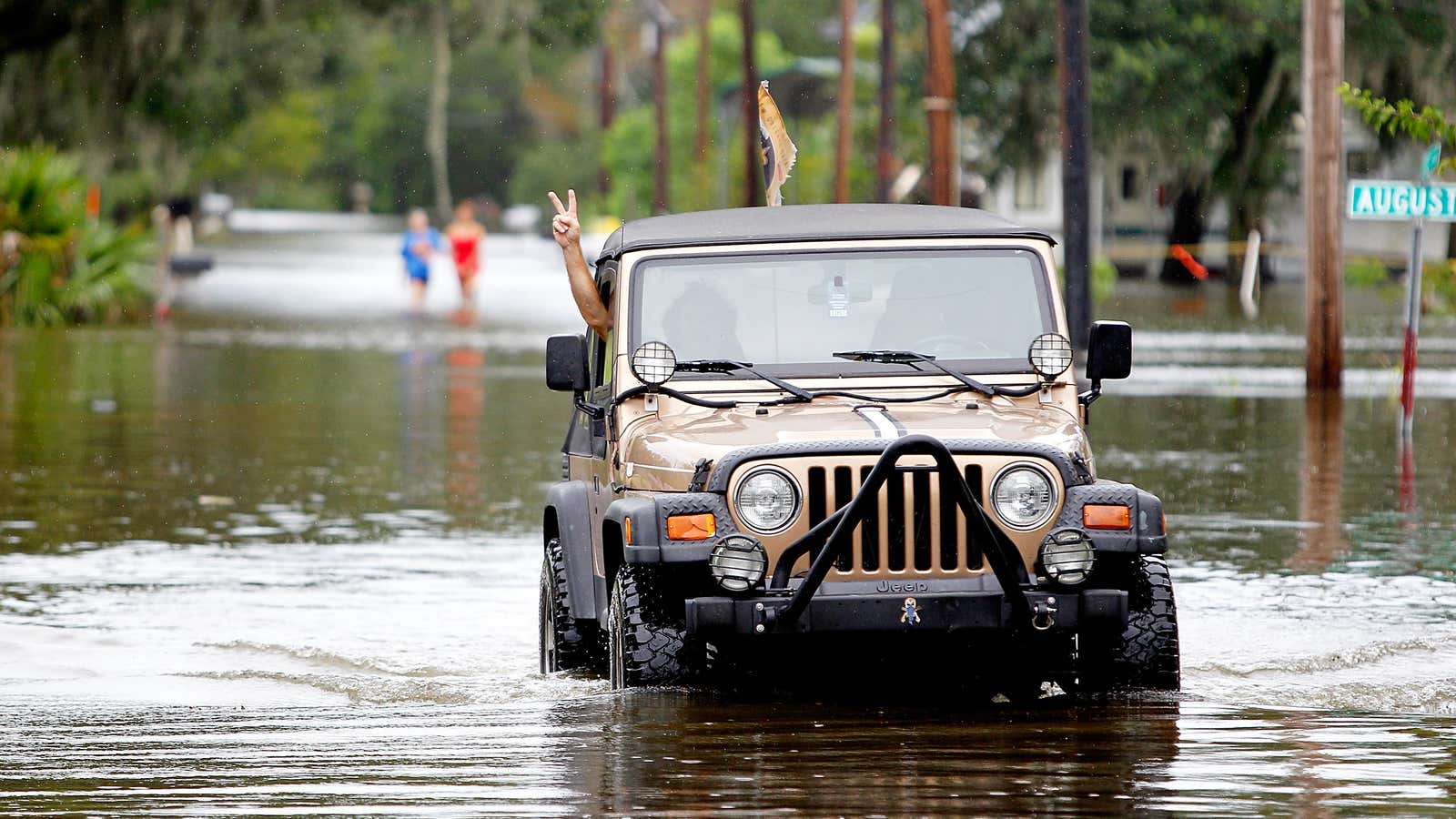Chrysler has rejected the request from the US National Highway Traffic Safety Administration to recall 2.7 million Jeeps. It’s a highly unusual move: The last time a car-maker faced down the NHTSA was in 1998, and that time too, it was Chrysler.
The NHTSA had alleged that the fuel systems in 1993-2004 Jeep Grand Cherokees and 2002-07 Jeep Liberty models are defective and pose a safety risk in rear-impact collisions. The NHTSA cited 22 collisions that resulted in fatal fires in Jeep Grand Cherokees, and five fatal accidents in the Jeep Liberty, in its request.
But Chrysler rejected the charges that the vehicles were unsafe, saying that the fire-related accidents occurred “less than once for every million years of vehicle operation,” a rate Chrysler said was “similar to comparable vehicles produced and sold during the time in question.” In other words, the company says, the Jeeps are only as dangerous as other cars on the road.
So why is Chrysler playing with fire and taking on the safety regulator? Because it simply cannot afford the cost of a recall.
Toyota is still recovering from the recall in 2010 related to unintended acceleration, which knocked it out of the top position in the US car market. And Chrysler itself is still reeling from the recall of 469,000 Jeeps in May, because the transmission could shift by itself from “park” into “neutral.” An even bigger recall now would severely dent its fragile reputation and threaten its recovery.
Then there is the issue of money. The Center for Auto Safety estimates that latest recall would cost Chrysler around $300 million. That’s $300 million that Chrysler cannot afford right now.
All eyes will be on the federal agency now. It has two options: Continue its inquiry, or try to force a recall. The top bosses at Chrysler will be praying for a repeat of 1998, when the agency chose not to follow up its request.
